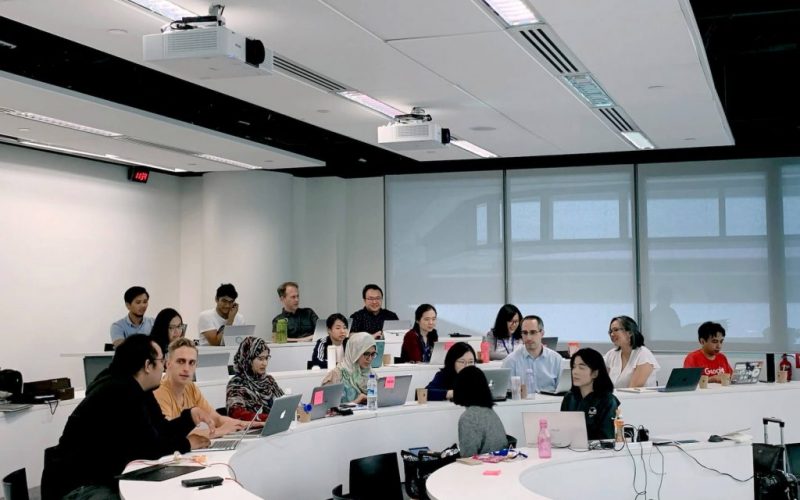The time in university is wonderful! The way you learn differs slightly from the methods you were taught in school and college. Lessons come in a variety of forms, and even while they are less structured than at school, you still can’t skip any of them and expect to graduate.
Though you’ve undoubtedly heard the terms lectures, seminars, and workshops, can you really explain what they mean?
To put it briefly, these three things are various approaches to teaching you everything you need for your degree.
The information is presented to you in a lecture-style format. Seminars look like typical classroom instruction. Workshops are typically additions that are optional and have a seminar-like vibe.
Now that you are aware of the three categories of university instruction continue reading to gain a deeper understanding of each.
Table of contents
- What is a Seminar at University?
- What is the Purpose of the Seminar?
- How Long Does a University Seminar Last?
- University Lectures
- What is a Workshop at University?
- What is the Purpose of University Workshop?
- How Long Do University Workshops Last?
- What is the Difference Between a Seminar and a Lecture in University?
- What’s Better; Seminars or Lectures?
- FAQs
- Conclusion
- References
- Recommendations
What is a Seminar at University?
A seminar at university is a focused and interactive academic session that encourages in-depth exploration of a specific topic.
Unlike traditional lectures, seminars foster lively discussions, critical thinking, and active participation among a smaller group of students.
Led by a knowledgeable instructor, seminars encourage students to share their perspectives, debate ideas, and collaborate on projects. These sessions provide an opportunity to delve deeper into subjects, challenge assumptions, and develop analytical skills.
With a blend of guided guidance and intellectual freedom, university seminars create an environment where learning becomes a dynamic and engaging journey.
Read: Does It Matter Which University You Go To?
What is the Purpose of the Seminar?
A seminar aims to facilitate in-depth understanding and critical thinking about a particular subject.
Seminars encourage students to analyze, question, and apply knowledge by providing a platform for interactive discussions and collaboration. These sessions promote active learning, allowing participants to share diverse viewpoints, engage in debates, and refine their ideas.
The seminar’s dynamic nature nurtures communication skills, teamwork, and independent thought.
The goal is to move beyond passive information absorption, foster a deeper grasp of concepts, and cultivate the ability to navigate complex ideas with nuance and insight.
How Long Does a University Seminar Last?
The duration of a university seminar can vary based on factors like academic level, subject, and institution policies.
Generally, seminars span 1 to 2 hours per session, with weekly meetings over a semester.
This time frame allows for in-depth discussions, interactive activities, and exploration of complex concepts. Shorter, intensive seminars might last a few days, diving deeply into a subject.
The length is designed to balance thorough engagement with the topic while accommodating students’ schedules and attention spans.
University Lectures
University lectures are informative presentations delivered by professors or experts to a larger audience of students. These sessions aim to convey key concepts, theories, and information about a particular subject.
Unlike seminars, lectures are typically one-sided, where the instructor imparts knowledge while students listen and take notes.
While interaction is limited during the lecture, students often can engage in discussions or ask questions in separate tutorial sessions.
Lectures serve as a foundation for understanding complex topics, providing a structured framework that students can explore further through reading, research, and discussions.
Also, read: How to Receive Extra Time For GCSE, A-Level and University Exams
What is a Workshop at University?
A university workshop is a hands-on, interactive learning session designed to develop practical skills, foster creativity, and encourage active participation.
Workshops, led by experts in the field, offer a dynamic environment for students to engage with tools, techniques, and real-world scenarios related to a specific subject.
Participants collaborate, experiment, and problem-solve, often working in groups to accomplish tasks or projects.
Unlike traditional lectures, workshops emphasize experiential learning, allowing students to apply theory to practice and gain insights beyond the classroom.
These sessions cultivate technical proficiency and a deeper understanding of the subject matter.
What is the Purpose of University Workshop?
The purpose of a university workshop is to provide students with a hands-on and immersive learning experience that goes beyond traditional classroom settings.
Workshops aim to bridge the gap between theoretical knowledge and practical application by allowing participants to engage directly with tools, techniques, and real-world challenges.
These sessions foster critical thinking, problem-solving skills, and collaboration through interactive activities. Workshops often focus on skill development, encouraging students to acquire proficiency in areas relevant to their field of study or future careers.
Workshops enhance students’ abilities to navigate complex tasks and scenarios effectively by offering a dynamic and experiential learning environment.
How Long Do University Workshops Last?
University workshop durations vary widely based on the subject, objectives, and institution. Short workshops may last a few hours or even a day, offering a concentrated burst of focused learning.
Longer workshops might extend over a weekend or several days, allowing for more in-depth exploration and hands-on practice.
The duration is tailored to balance comprehensive instruction with participants’ engagement levels and schedules.
This flexibility ensures that students have ample time to absorb new concepts, actively participate in activities, and gain practical skills during the workshop.
What is the Difference Between a Seminar and a Lecture in University?
At university, seminars and lectures are distinct yet complementary modes of learning. A lecture is a one-way communication where an instructor imparts information to a larger audience.
It serves as a foundation by presenting key concepts, theories, and facts. In contrast, a seminar is a smaller, interactive gathering where students engage in active discussions, debates, and critical analyses of specific topics.
Led by an instructor, seminars encourage participation, allowing students to share their viewpoints and explore ideas collectively.
Lectures are ideal for conveying essential information efficiently, while seminars delve deeper, fostering critical thinking and independent analysis.
Lectures tend to have limited interaction during the session, whereas seminars prioritize dialogue, enabling students to challenge assumptions and build communication skills.
Also, lectures lay the groundwork, and seminars build upon it, creating a holistic learning experience where knowledge is received and actively explored and debated.
Read Also: The Differences Between Liberal Arts and The Humanities | 2024
What’s Better; Seminars or Lectures?
Deciding whether seminars or lectures are better depends on students’ learning goals and preferences.
Lectures efficiently deliver foundational knowledge to a larger audience, making them suitable for introducing complex subjects or conveying essential concepts.
They provide a structured framework that can be useful for those who prefer a more straightforward approach to learning.
On the other hand, seminars offer a more interactive and engaging learning environment. They encourage critical thinking, deeper understanding, and active participation.
Seminars enable students to explore topics in-depth, share diverse perspectives, and develop analytical and communication skills through discussions and debates.
It’s not a matter of being universally better than the other but choosing the right approach for the context.
A combination of both can provide a well-rounded educational experience. Lectures set the foundation, and seminars encourage students to actively apply, question, and internalize the knowledge they’ve gained.
FAQs
Seminars involve interactive discussions among smaller students, while lectures are one-way presentations to a larger audience. Workshops are hands-on sessions focused on practical skill development.
Yes, workshops can be adapted to various disciplines. They’re particularly valuable for hands-on subjects, like art, science experiments, or practical skills in business and technology.
No, seminars can benefit students at all levels. They encourage active learning, critical thinking, and collaboration, which are essential skills for all stages of education.
The purpose of a seminar is to enable students to improve their knowledge and understanding of a topic by engaging with key issues – participation is therefore necessary and successful participation involves preparation.
Half-day workshops last 3–4 hours and are best suited for introductory or overview workshops. Full-day workshops last 6–8 hours and are appropriate for training or in-depth sessions. Multi-day workshops take place over several days and are suitable for extended training or intensive workshops.
Conclusion
Understanding the distinct strengths of seminars, lectures, and workshops illuminates their educational contributions. They create a dynamic and comprehensive learning experience, enriching knowledge and skills.
References
- nextstepssw.ac.uk – WHAT ARE LECTURES, SEMINARS AND WORKSHOPS?
- thinkstudent.co.uk – University Seminars, Lecturers & Workshops:
- crushcollege.org – What are seminars, lectures, & workshops?
- academicmarker.com – How do university seminars differ from lectures?
- prospects.ac.uk – Getting the most out of lectures and seminars





